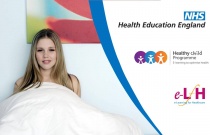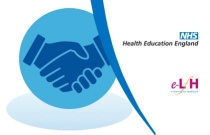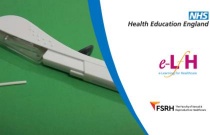Turning Clinical Data Into Effective Action: A Case Study
Tim Putnam and Karin Abraham
1.00 Hours
This session will describe how a Critical Access Hospital in Batesville, Indiana is transitioning from guessing to wisdom through data from analytics and population health software. The session will present a case study based on the experience of Margaret Mary Health and describe how the facility finding success and participatin....
Privacy and Confidentiality
Ms Deb Shearman
0.50 Hours
Overview; People’s right to privacy and confidentiality; Strategies and responsibilities to respect privacy and confidentiality; Managing personal information; Responsibilities under the Australian Privacy Law regarding the Notifiable Data Breach (NDB) Scheme
Using SCIT vs. SLIT to Modify Allergic Disease
Stephen R. Durham (MA MD FRCP), Mohamed H. Shamji (PhD FAAAAI), and Giovanni Passalacqua (MD)
1.25 Hours
This course offers an in-depth explanation of using SCIT vs. SLIT to Modify Allergic Disease.
Sustainable Population Health: One Health System's Journey
Terri H. Steinberg, MD, MBA
1.00 Hours
Effective population health management comes down to two issues: scale and value. A strategic view is needed to transition from volume-based fee-for-service to value. Successful organizations will evolve from limited-scale population health programs to general adoption of effective business models that drive value-based care. F....
Understanding Dementia 5: Changed Behaviours
e3Learning
Working with people who have dementia is not easy. It can be upsetting, trying and challenging, but it can also be very rewarding and satisfying. This series is made of up five courses, each providing training in different aspects of dementia care. The aim of this is to provide an understanding of dementia, with the goal of:....
Symptom Management in People with Learning Difficulties or Mental Health Problems in Palliative Care
Regina McQuillan and Karen Ryan
This session identifies particular problems in providing end of life care for vulnerable patients with learning difficulties or severe and enduring mental health problems and it outlines how these problems can be addressed. This session was reviewed by Regina McQuillan and Christina Faull and last updated in December 2014.
Adult Sepsis
Alison Tavare
This session covers non pregnant adults and children aged 12 years and over. It is aimed at all out of hospital clinicians, GPs, Nurses, Paramedics, Community Midwives and those providing urgent or unscheduled care. It will cover the subtle ways in which sepsis may present and highlight the history, examination and the managemen....
Term Newborn Babies at Risk of Respiratory Distress
Sue Macdonald, Tracey Jones and Kelly Harvey
0.75 Hours
This session provides a review of anatomy, applied physiology and a consideration of the factors that impact on the newborn respiratory well-being. It seeks to increase knowledge and skills to enable the practitioner to provide high quality care to the neonate, encouraging an integrated and seamless team approach to care.
Self Awareness in Communication
Carole Tallon
This session explains the importance of self-awareness and reflection in end-of-life care.
Oral and Dental Care
Deb Shearman
0.50 Hours
Overview; Assessing, planning oral and dental care; Supporting independence with oral care; Caring for older people’s teeth and dentures; Oral care and dementia
Women and Girls
Yvonne Martinez, CADC-CS, ICCS, ICADC, NCAC-I, CRPS
3.00 Hours
Women and Girls is a basis for the development of core competencies in the substance abuse counselor serving women and girls. This unit offers a deeper look at a relational model of treatment, understanding trauma, family-centered needs, women's health care, interdisciplinary effectiveness, service-specific attitudes and attrib....
Emotional Intelligence: Leadership and career success
Jenny Bergin, BPharm, MBA, FACP
This educational activity was designed to discuss the role of emotions and emotional intelligence in health, wellbeing and work performance, and how to use it to improve relationships and leadership behaviours. This activity was developed and accredited in Australia and was designed to address competencies described by the Na....
VTE Prevention in Secondary Care
Roopen Arya and Lara Roberts
0.50 Hours
The prevention of venous thromboembolism (VTE) in hospitalised patients is a top clinical priority in the NHS. The National VTE Prevention Programme provides a comprehensive, integrated and financially incentivised approach to prevent VTE. In this session, you will learn how to assess a patient's risk of VTE and choose a suitabl....
Sexual Behaviour In Adolescence
Andrea Goddard
0.50 Hours
This session aims to help you understand the range and epidemiology of normal sexual behaviour in adolescence. It will also create awareness of the issues relating to gender, sexual identity and implications of long-term illness for sexual function and health.
Vulnerable Infants and Children
Andrea Goddard
0.50 Hours
This session will look at types of vulnerability that you are likely to encounter in children and young people you see in your everyday practice. It links in closely with the previous module Family health and with the modules ahead. It should encourage you to think of child vulnerability in a broad and thoughtful way.
Fire Safety Level 1
National Health England
This session will cover the training required for fire safety. As fire safety training is usually tailored to each specific working environment, dependent on which area or group within the NHS that you work, there may be elements of your training that are not covered here; alternatively, there may be others covered here that....
Vascular Laboratory Markers of Cardiovascular Risk
Marsha M. Neumyer, BS, RVT, FSDMS, FSVU, FAIUM
2.00 Hours
Atherosclerosis is well recognized as a deadly and disabling systemic disease that affects the arterial wall. The process begins early in life and progresses unpredictably. Unfortunately, the causes are unknown and, therefore, there is at present no known cure. The risk factors for atherosclerotic disease have been appreciated f....
Quality and Safety in the NHS
Christina Faull
This session stresses that the drive for quality in the NHS has patient safety at its heart. It will introduce you to a broader concept of patient safety within patient pathways. Openness is discussed as the key feature required for patient safety.
Character test
Mr WCEA Administrator
backspace† tab† line break† ¤ ¶ § paste† space† ! " # $ % & ' ( ) * + , - . / 0 1 2 3 4 5 6 7 8 9 : ; < = > ? @ A B C D E F G H I J K L M N O P Q R S T U V W X Y Z [ \ ] ^ _ ` a b c d e f g h i j k l m n o p q r s t u v w x y z { |....
Principles and Strategies in Communication
Oluwatoni Idowu and David Keen
This session introduces therapeutic communication and discusses the principles and skills required to ensure communication is effective.
Additional Training in Intrauterine Contraception (IUC)
Anita Maini, Wendy Knoops, and Ms Caroline Gumbley
This session provides evidence-based recommendations and good practice points for healthcare professionals on the insertion of intrauterine contraception (IUC) and techniques used within the UK. The session also discusses the management of immediate complications and post-insertion advice.
Subdermal Implant (SDI)
Dr Nazia Hussain
The session will outline the advantages and disadvantages of a subdermal implant and detail possible side-effects and the management of these. Contraindications will also be discussed.






















